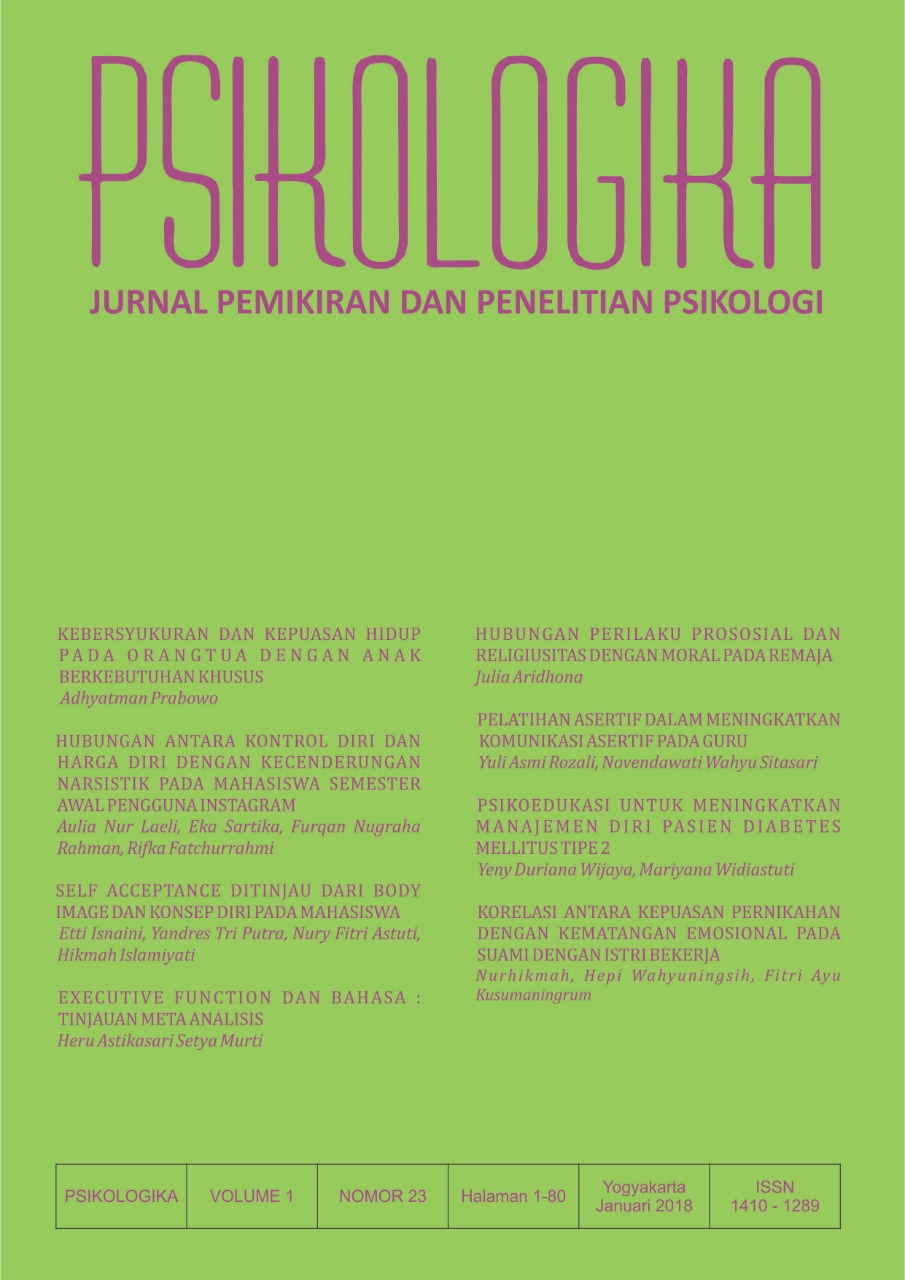Main Article Content
Abstract
Cyberbullying has been developed in recent years. It has negative impacts for its victims such as low self esteem, anxiety, and depression. This study aims to examine the relationship between anger management and permissive parenting patterns with cyberbullying behavior in adolescents. The population in this study are adolescents aged 15-18 years who domiciled in Yogyakarta. The number of samples of this study were 122 adolescents. The research method used is quantitative method with scale as data collection tool. Scale used in this research is anger management scale, permissive parenting scale scale, cyberbullying behavior scale. Data analysis used is multiple regression analysis technique. The results of this study show the coefficient value R = 0.688 with p = 0,000 (p <0.01) which means there is a very significant relationship between anger management and permissive parenting patterns with cyberbullying behavior in adolescents and effective contribution of 47.3%. Effective contribution of anger management variable is 38.5% and permissive parenting pattern is 8.8% to cyberbullying behavior
Article Details
Authors who publish with this journal agree to the following terms:
- Authors retain copyright and grant the journal right of first publication with the work simultaneously licensed under a Creative Commons Attribution-ShareAlike 4.0 International License that allows others to share the work with an acknowledgment of the work's authorship and initial publication in this journal.
- Authors are able to enter into separate, additional contractual arrangements for the non-exclusive distribution of the journal's published version of the work (e.g., post it to an institutional repository or publish it in a book), with an acknowledgment of its initial publication in this journal.
- Authors are permitted and encouraged to post their work online (e.g., in institutional repositories or on their website) prior to and during the submission process, as it can lead to productive exchanges, as well as earlier and greater citation of published work (See The Effect of Open Access).




